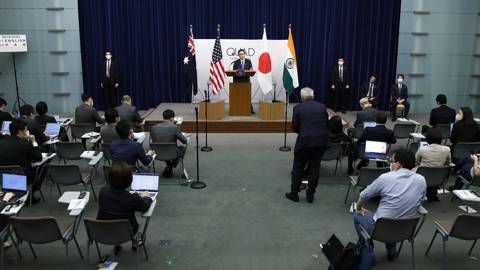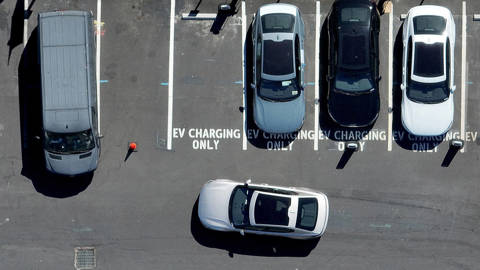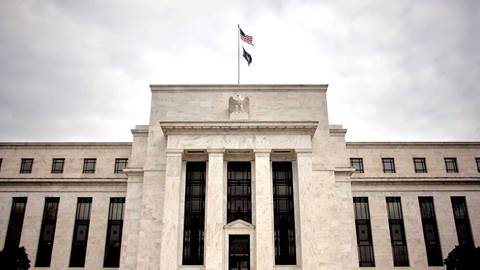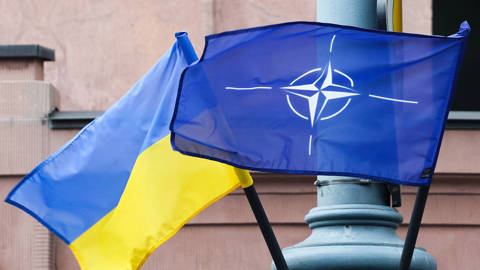By 2001, it was clear that George W. Bush's lazy arrogance was resulting in policy decisions that were essentially random. Yet America's press corps gave the administration a pass for five more years.
I want to deviate from my usual economic theme this month and focus instead on the system by which the press – mostly the American press – covers government nowadays. But perhaps this is not too great a deviation, for the behavior of the press affects not only politics, but economics as well.
Consider an editorial written in March by the Washington Post’s editorial director, Fred Hiatt, in which he makes a very small and limited apology for the newspaper’s coverage and evaluation of the Bush administration. According to Hiatt, “We raised such issues” as whether the Bush administration had properly thought its proposed adventure in Iraq through, “but with insufficient force.” In other words, Hiatt finds fault with himself and his organization for saying the right thing, but not loudly enough.
Next, consider a comment by the former editor of the New York Times, Max Frankel, about how the Washington ecology of media leaks is healthy, because “most reporters do not just lazily regurgitate...leaks.” Instead, “they use them as wedges to pry out other secrets” and so oversee the government. The system may be “sloppy and breed confusion,” but “tolerating abusive leaks by government [that misinform] is the price that society has to pay for the benefit of receiving essential leaks about government.”
So, where Hiatt sees a press corps that was a little too cowardly about overseeing the Bush administration, Frankel sees a press corps where a sloppy and confusing process is nevertheless doing a reasonable job. I see a very different picture.
It was the summer of 2000 when I began asking Republicans I know – generally people who might be natural candidates for various sub-cabinet policy positions in a Republican administration – how worried they were that the Republican presidential candidate, George W. Bush, was clearly not up to the job. They were not worried, they told me, that Bush was inadequately briefed and strangely incurious for a man who sought the most powerful office in the world. One of President Clinton’s problems, they said, was that the ceremonial portions of the job bored him – and thus he got himself into big trouble.
Look at how Bush had operated as president of the Texas Rangers baseball club, they said. Bush let the managers manage the team and the financial guys run the business. He spent his time making sure the political coalition to support the Texas Rangers in the style to which it wanted to be accustomed remained stable. Bush knows his strengths and weaknesses, they told me. He will focus on being America’s Queen Elizabeth II, and will let people like Colin Powell and Paul O’Neill be America’s Tony Blair and Gordon Brown.
By the summer of 2001, it had become clear that something had gone very wrong. By that point, Bush had rejected O’Neill’s and Christine Todd Whitman’s advice on environmental policy, just as he had rejected Alan Greenspan’s and O’Neill’s advice on fiscal policy, Powell’s and Condoleezza Rice’s advice on the importance of pushing forward on negotiations between Israel and Palestine, and – as we learned later – George Tenet’s and Richard Clarke’s advice about the importance of counterterrorism.
A strange picture of Bush emerged from conversations with sub-cabinet administration appointees, their friends, and their friends of friends. He was not just under-briefed, but also lazy: he insisted on remaining under-briefed. He was not just incurious, but also arrogant: he insisted on making uninformed decisions, and hence made decisions that were essentially random. And he was stubborn: once he had made a decision – even, or rather especially, if it was glaringly wrong and stupid – he would never revisit it.
So, by the summer of 2001, a pattern was set that would lead British observer Daniel Davies to ask if there was a Bush administration policy on anything of even moderate importance that had not been completely bollixed up. But if you relied on either the Washington Post or the New York Times, you would have had a very hard time seeing it. Today, it is an accepted fact that the kindest thing you can say about the Bush administration is that it is completely incompetent, which is the line now taken by hard-line Bush supporters like the National Review and the commentator Robert Novak.
Why didn’t the American press corps cover the Bush administration properly for its first five years? I really do not know. I do know that the world cannot afford to rely again on America’s press for its information: fool me once, shame on you; fool me twice, shame on me. So I appeal to all of you working for newspapers, radio, and television stations outside the United States: it is to you that we – including those of us in America – must look to discover what our own government is doing.









I want to deviate from my usual economic theme this month and focus instead on the system by which the press – mostly the American press – covers government nowadays. But perhaps this is not too great a deviation, for the behavior of the press affects not only politics, but economics as well.
Consider an editorial written in March by the Washington Post’s editorial director, Fred Hiatt, in which he makes a very small and limited apology for the newspaper’s coverage and evaluation of the Bush administration. According to Hiatt, “We raised such issues” as whether the Bush administration had properly thought its proposed adventure in Iraq through, “but with insufficient force.” In other words, Hiatt finds fault with himself and his organization for saying the right thing, but not loudly enough.
Next, consider a comment by the former editor of the New York Times, Max Frankel, about how the Washington ecology of media leaks is healthy, because “most reporters do not just lazily regurgitate...leaks.” Instead, “they use them as wedges to pry out other secrets” and so oversee the government. The system may be “sloppy and breed confusion,” but “tolerating abusive leaks by government [that misinform] is the price that society has to pay for the benefit of receiving essential leaks about government.”
So, where Hiatt sees a press corps that was a little too cowardly about overseeing the Bush administration, Frankel sees a press corps where a sloppy and confusing process is nevertheless doing a reasonable job. I see a very different picture.
It was the summer of 2000 when I began asking Republicans I know – generally people who might be natural candidates for various sub-cabinet policy positions in a Republican administration – how worried they were that the Republican presidential candidate, George W. Bush, was clearly not up to the job. They were not worried, they told me, that Bush was inadequately briefed and strangely incurious for a man who sought the most powerful office in the world. One of President Clinton’s problems, they said, was that the ceremonial portions of the job bored him – and thus he got himself into big trouble.
Look at how Bush had operated as president of the Texas Rangers baseball club, they said. Bush let the managers manage the team and the financial guys run the business. He spent his time making sure the political coalition to support the Texas Rangers in the style to which it wanted to be accustomed remained stable. Bush knows his strengths and weaknesses, they told me. He will focus on being America’s Queen Elizabeth II, and will let people like Colin Powell and Paul O’Neill be America’s Tony Blair and Gordon Brown.
SPRING SALE: Save 40% on all new Digital or Digital Plus subscriptions
Subscribe now to gain greater access to Project Syndicate – including every commentary and our entire On Point suite of subscriber-exclusive content – starting at just $49.99.
Subscribe Now
By the summer of 2001, it had become clear that something had gone very wrong. By that point, Bush had rejected O’Neill’s and Christine Todd Whitman’s advice on environmental policy, just as he had rejected Alan Greenspan’s and O’Neill’s advice on fiscal policy, Powell’s and Condoleezza Rice’s advice on the importance of pushing forward on negotiations between Israel and Palestine, and – as we learned later – George Tenet’s and Richard Clarke’s advice about the importance of counterterrorism.
A strange picture of Bush emerged from conversations with sub-cabinet administration appointees, their friends, and their friends of friends. He was not just under-briefed, but also lazy: he insisted on remaining under-briefed. He was not just incurious, but also arrogant: he insisted on making uninformed decisions, and hence made decisions that were essentially random. And he was stubborn: once he had made a decision – even, or rather especially, if it was glaringly wrong and stupid – he would never revisit it.
So, by the summer of 2001, a pattern was set that would lead British observer Daniel Davies to ask if there was a Bush administration policy on anything of even moderate importance that had not been completely bollixed up. But if you relied on either the Washington Post or the New York Times, you would have had a very hard time seeing it. Today, it is an accepted fact that the kindest thing you can say about the Bush administration is that it is completely incompetent, which is the line now taken by hard-line Bush supporters like the National Review and the commentator Robert Novak.
Why didn’t the American press corps cover the Bush administration properly for its first five years? I really do not know. I do know that the world cannot afford to rely again on America’s press for its information: fool me once, shame on you; fool me twice, shame on me. So I appeal to all of you working for newspapers, radio, and television stations outside the United States: it is to you that we – including those of us in America – must look to discover what our own government is doing.